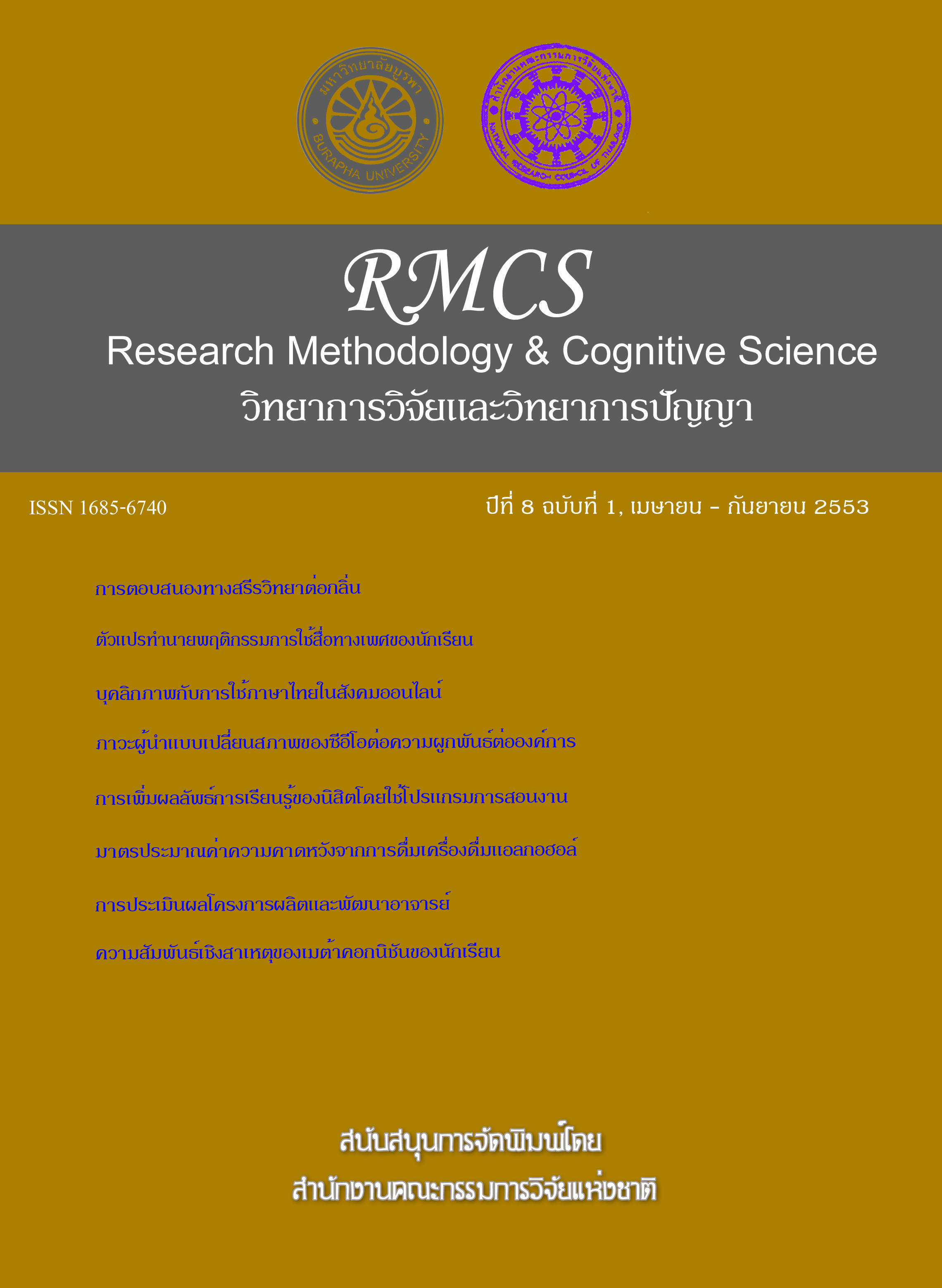การเพิ่มผลลัพธ์การเรียนรู้ของนิสิตปริญญาบัณฑิตโดยใช้โปรแกรมการสอนงาน
Main Article Content
Abstract
Increasing Learing Outcomes of Undergraduates by Using a Mentoring Program
The objective of this research was to study quantitatively the effect of mentoring on the cognitive, affective, and psychomotor achievement of undergraduate students, and on the rate of change in cognitive achievement while controlling for field of study and class size. The sample consisted of 212 second-semester undergraduate students, Faculty of Education, Chulalongkorn University, all of whom volunteered to participate in this research. Three research instruments were used: 1) the Educational Measurement and Evaluation Test; 2) a questionnaire for mentees measuring undergraduate learning attention; 3) a questionnaire related to mentoring manipulation. Longitudinal data were collected at three different times and analyzed using an analysis of causal relationship model. Findings were as follows: The effects of mentoring on learning outcomes indicated that there were significant interaction effects between mentoring type, field of study and class size. The validity of the two causal models was empirically confirmed: chi-square = 265.98, df = 250, p = 0.233, GFI = 0.911, AGFI = 0.875, RMR = 0.059 for the learning outcomes model and chi-square = 281.91, df = 251, p = 0.088, GFI = 0.907, AGFI = 0.870, RMR = 0.024 for the rate of change in cognitive achievement. The effects of mentoring had indirect effects of 0.261, and -0.004 on learning outcomes and on the rate of change in cognitive achievement of learning outcome, respectively.

